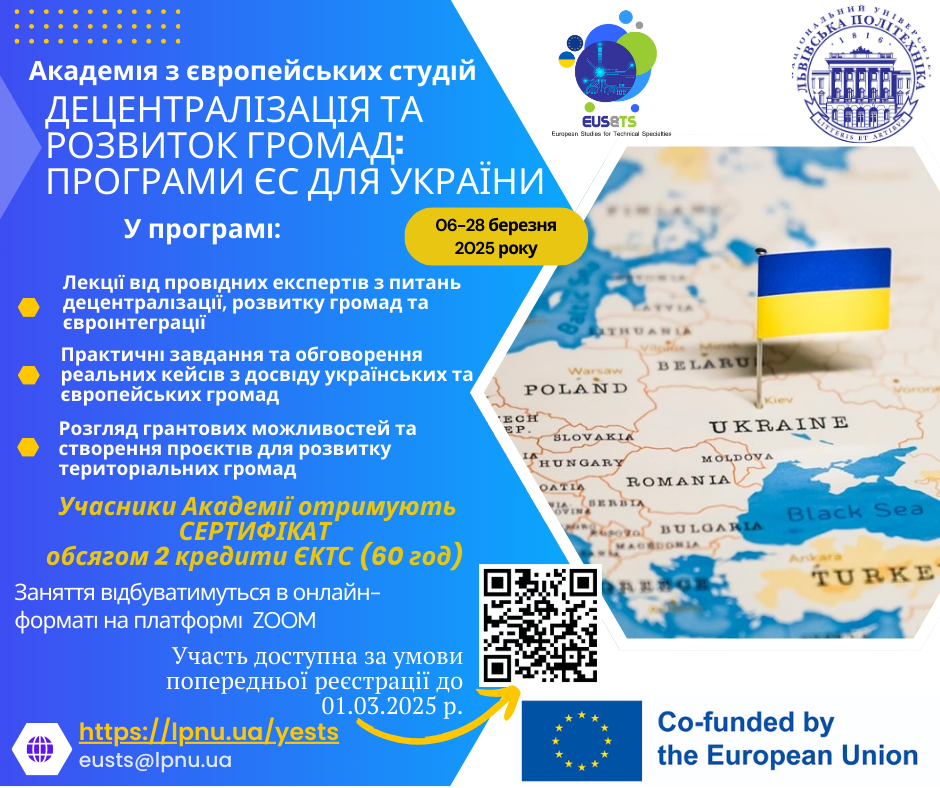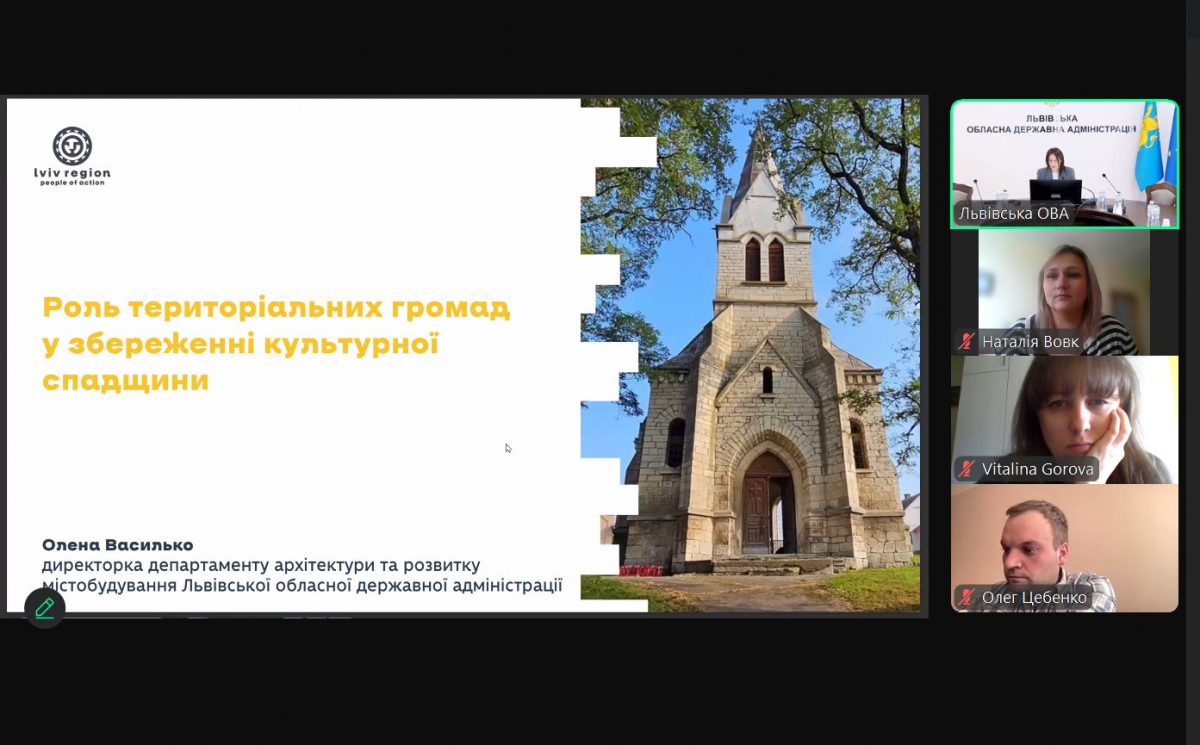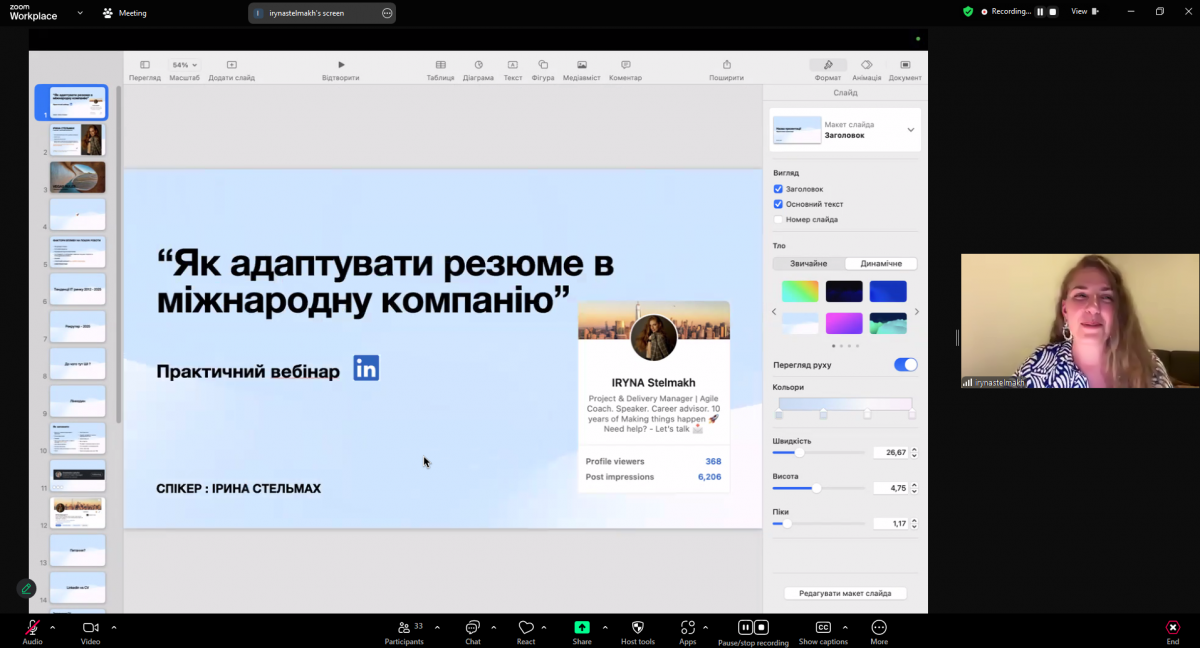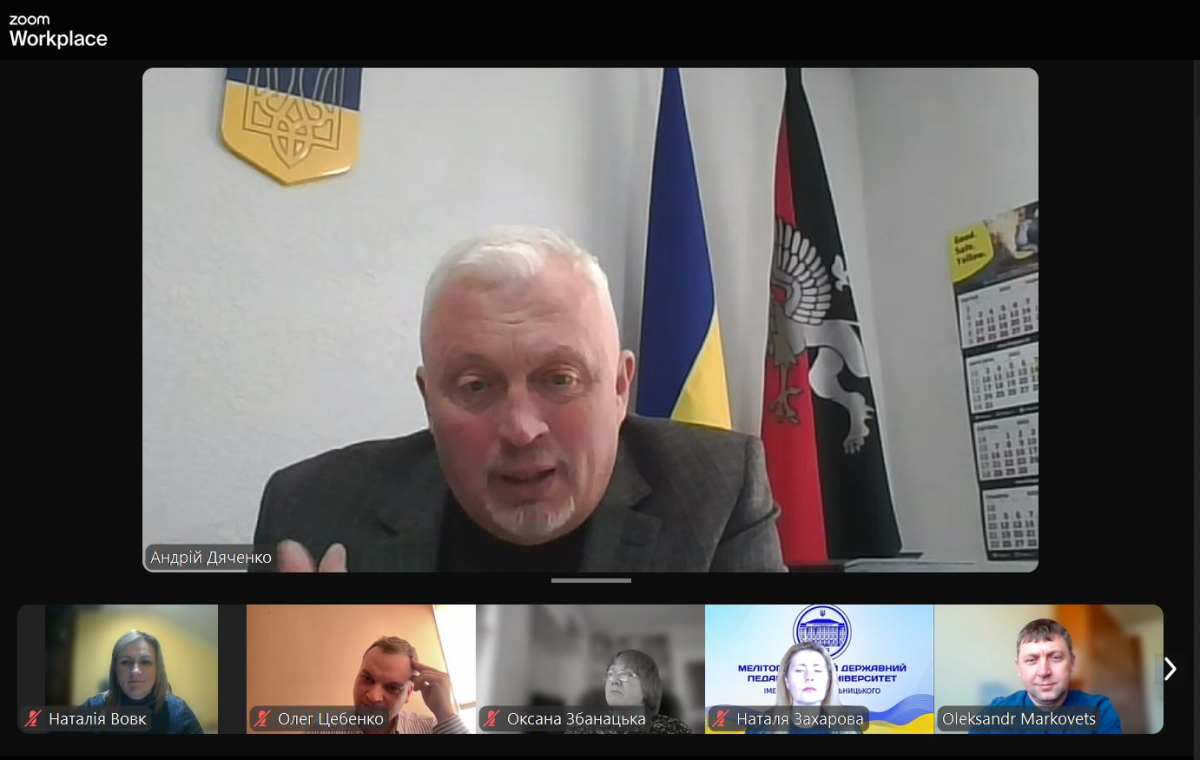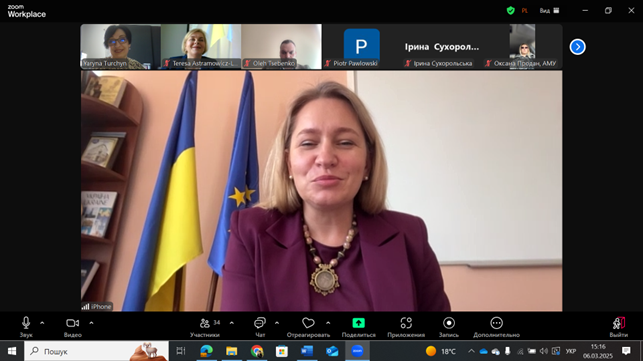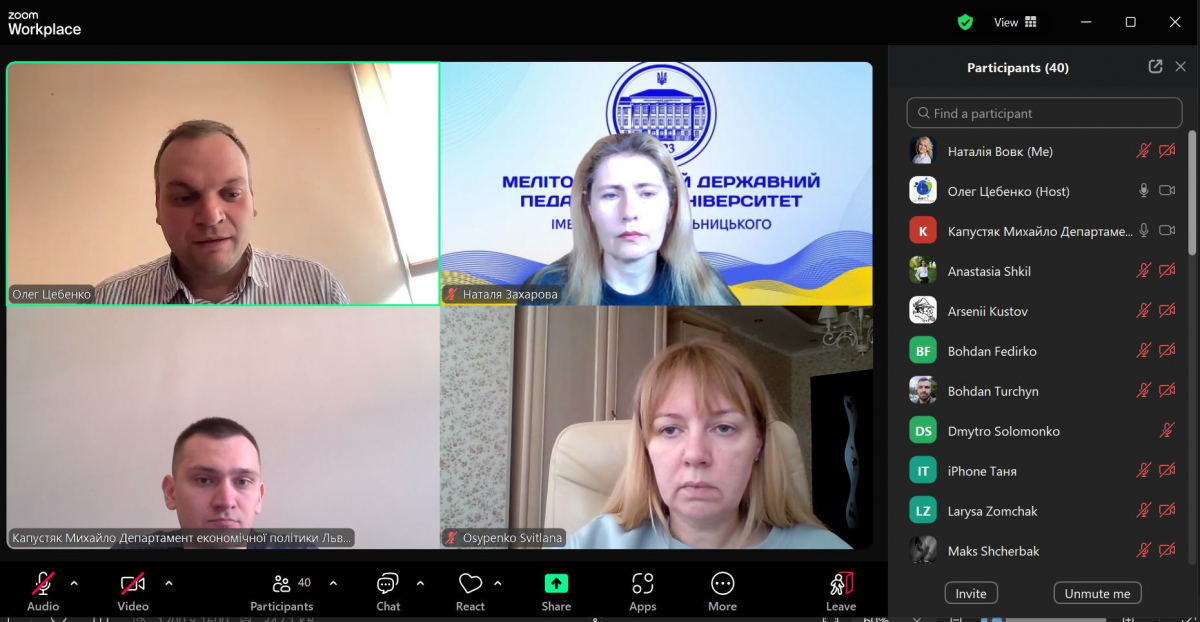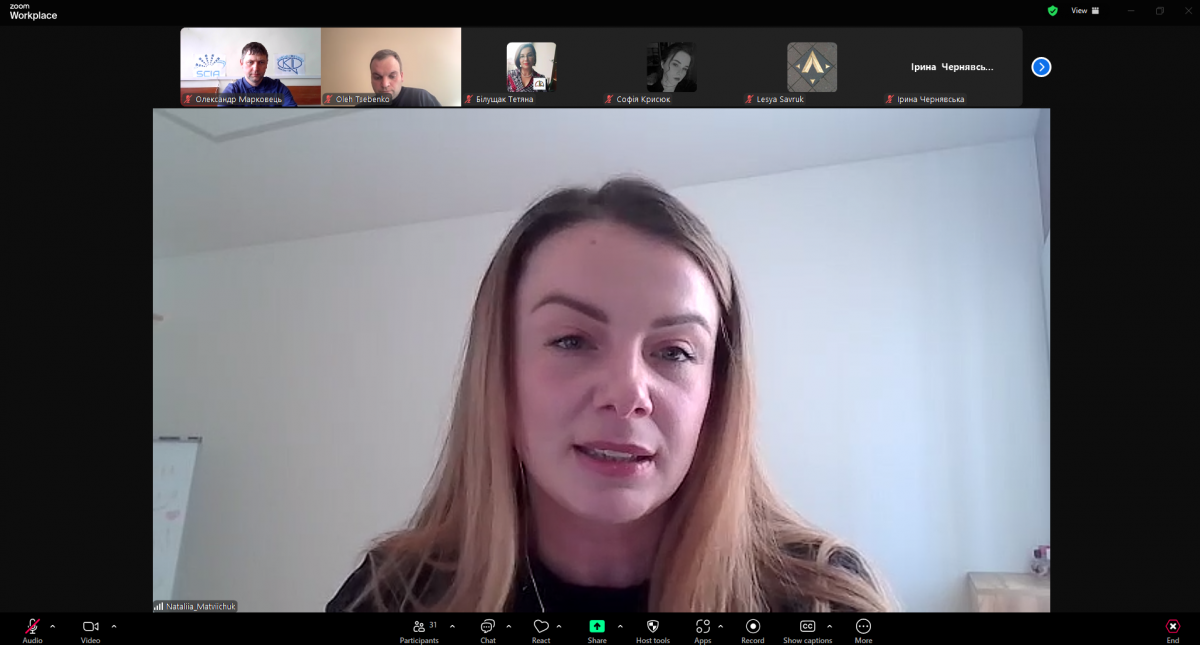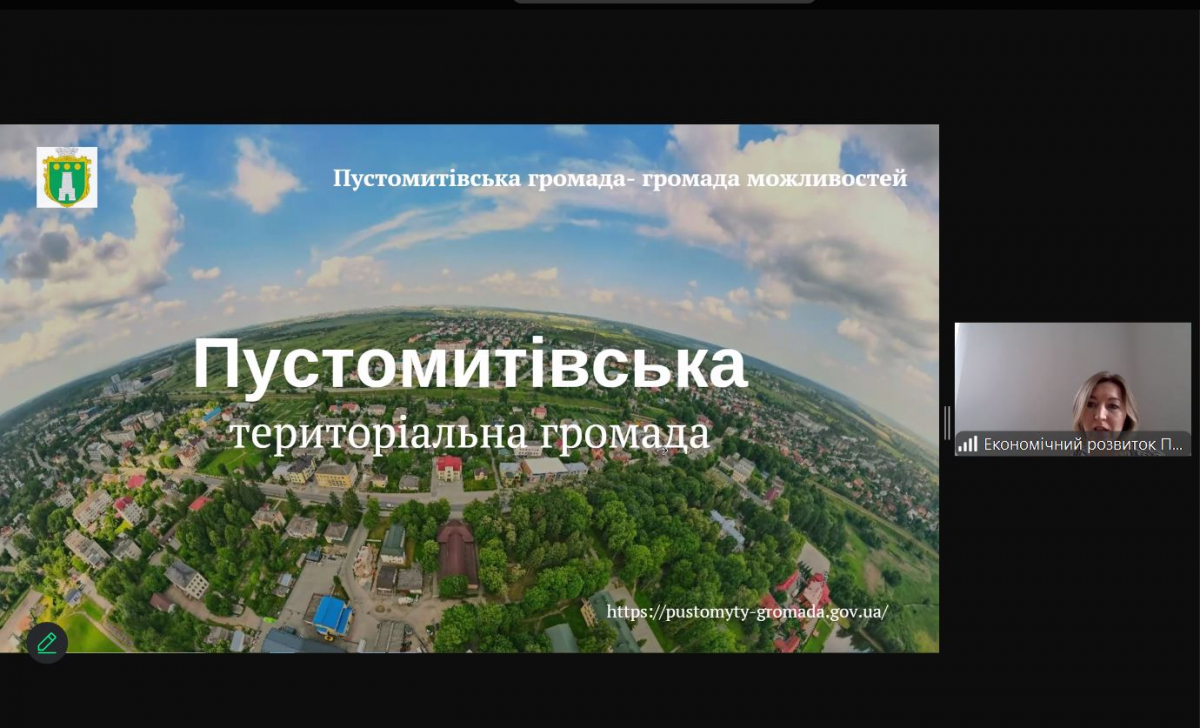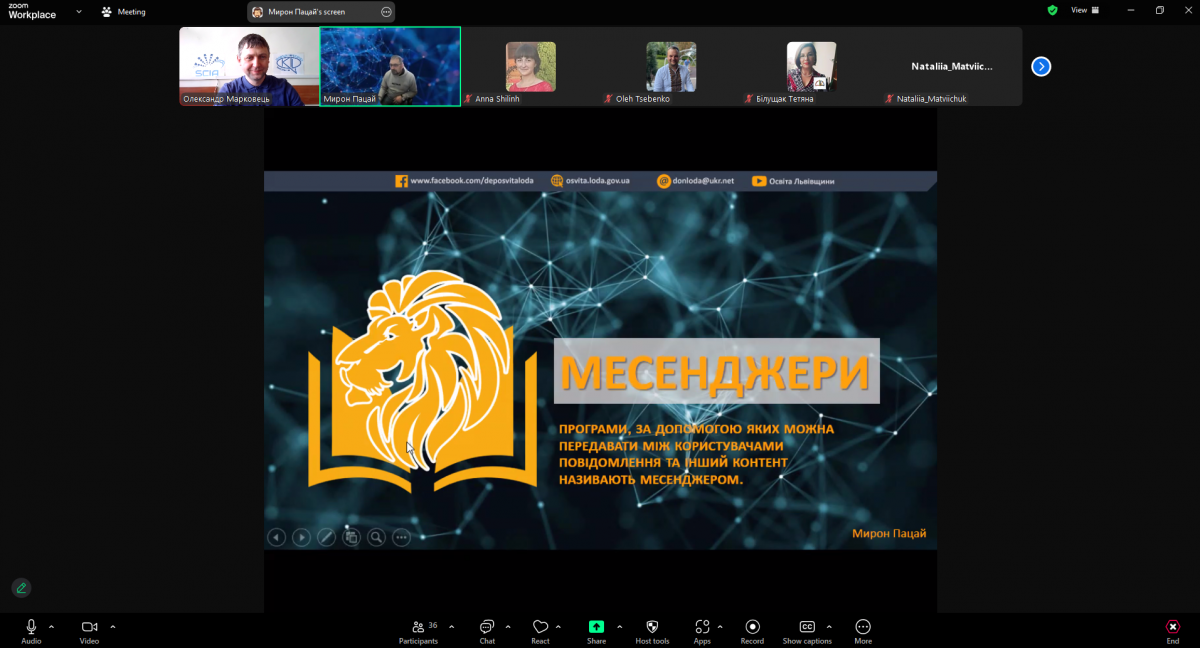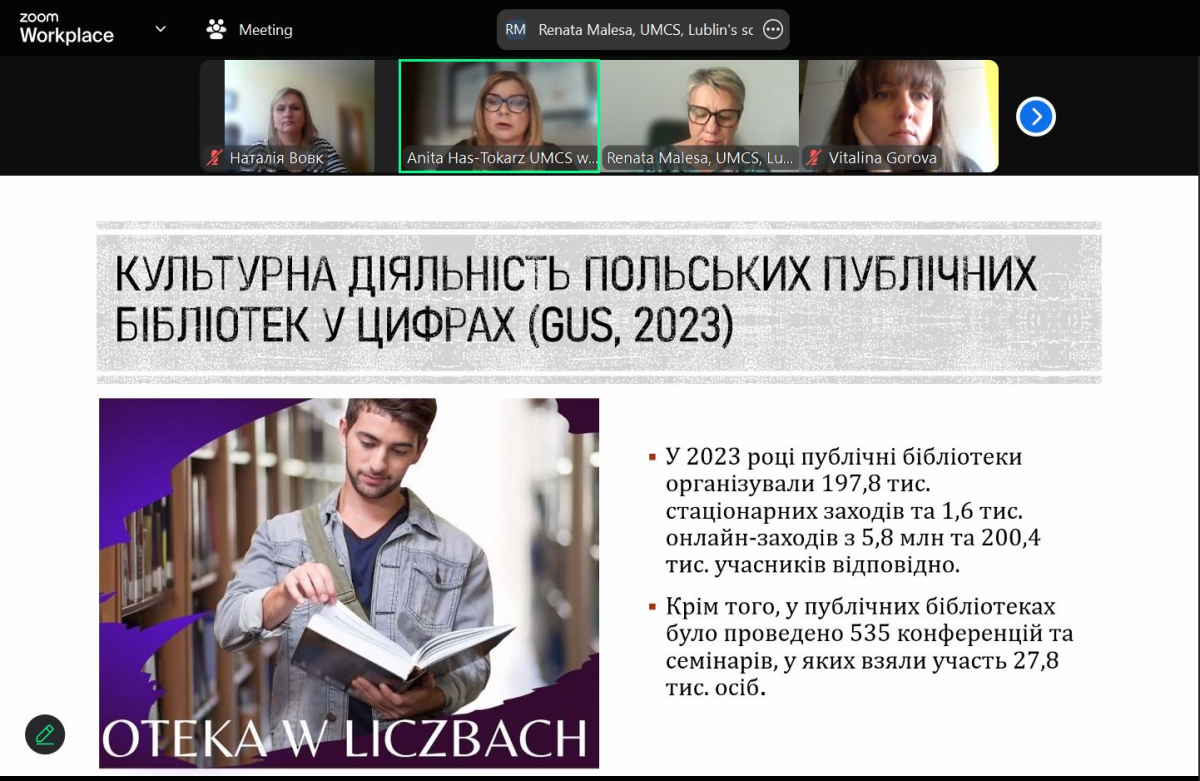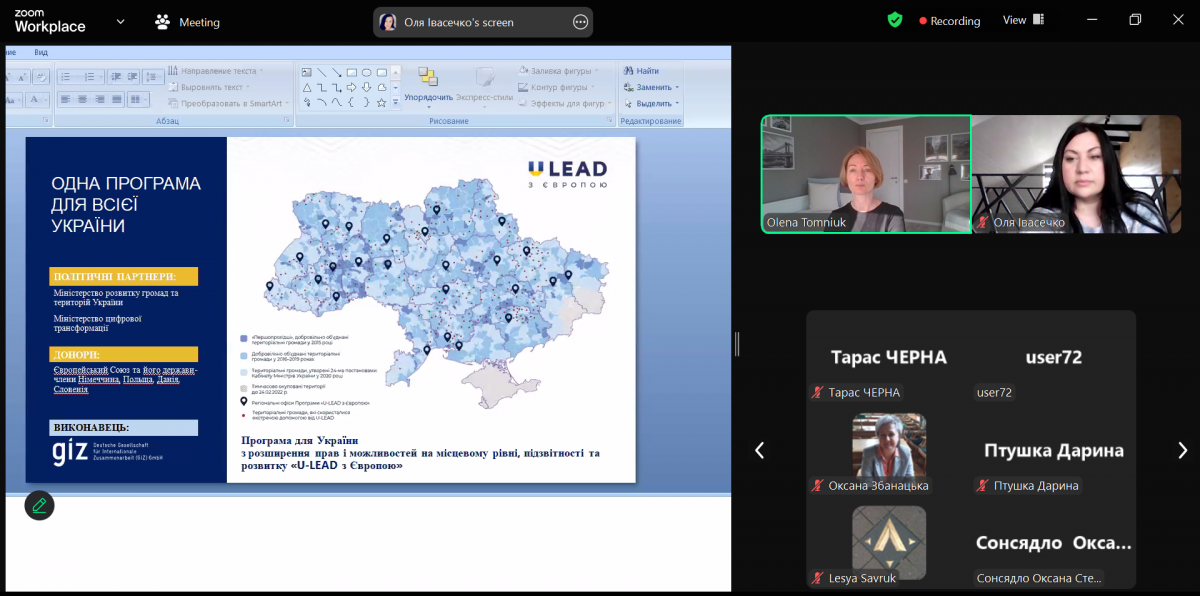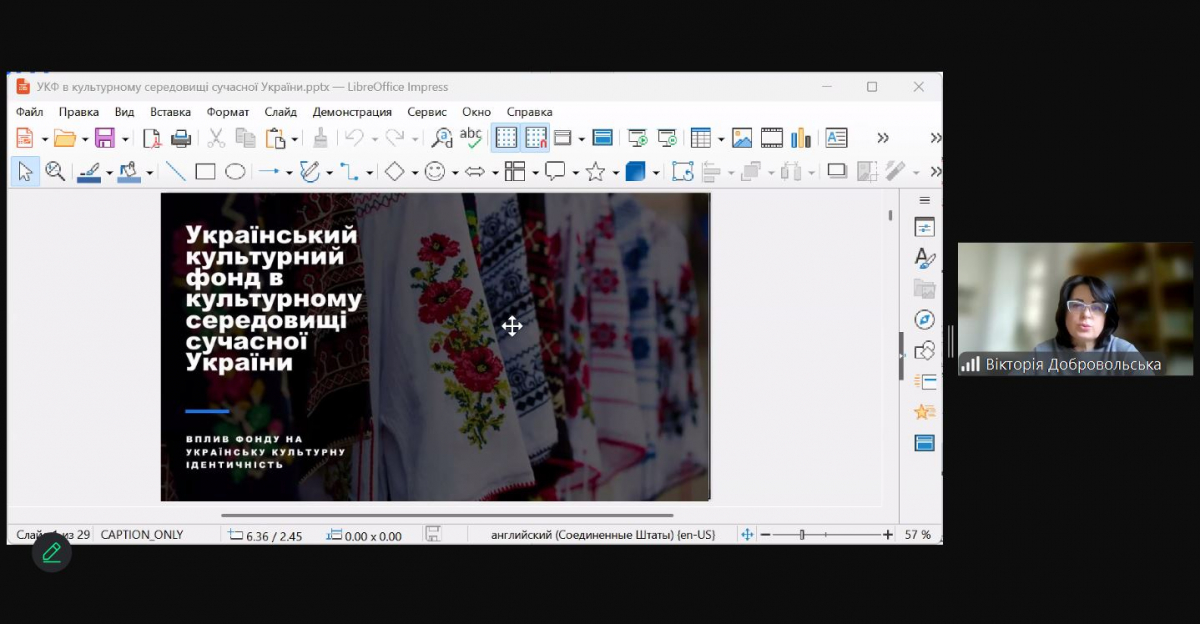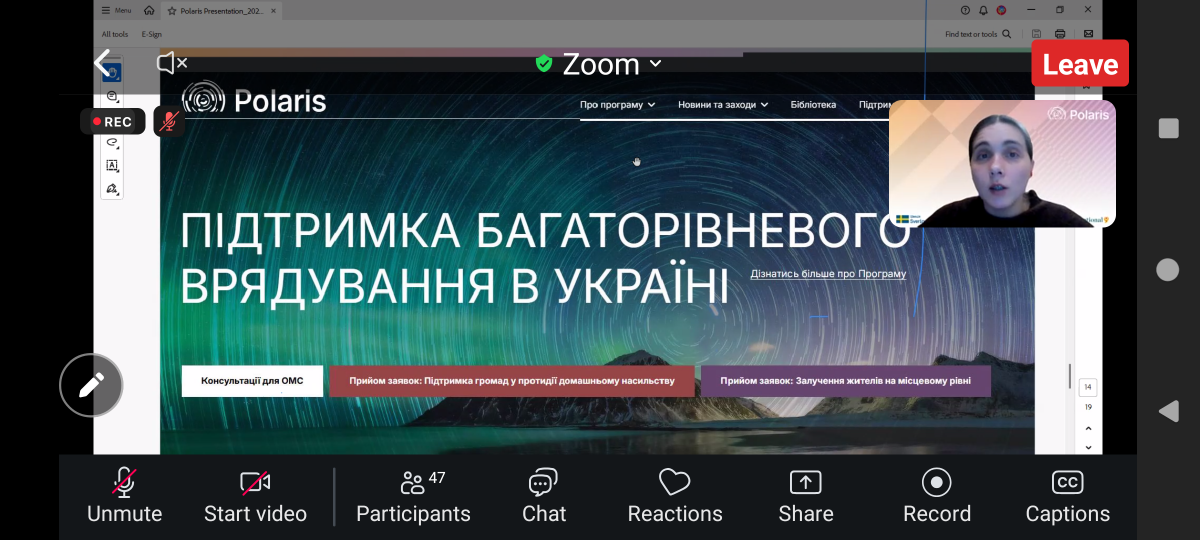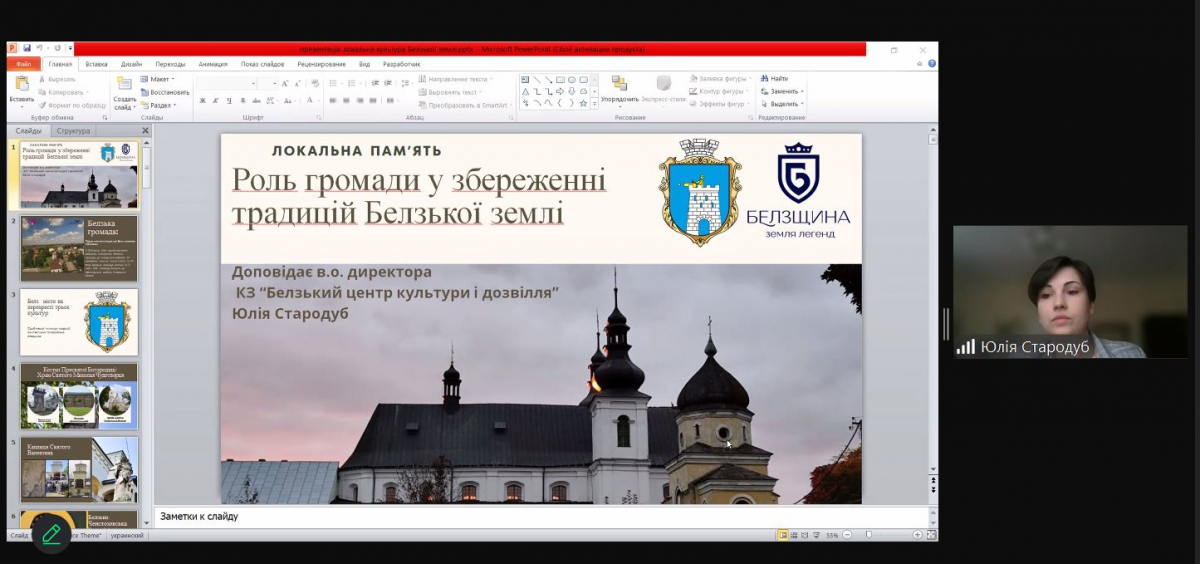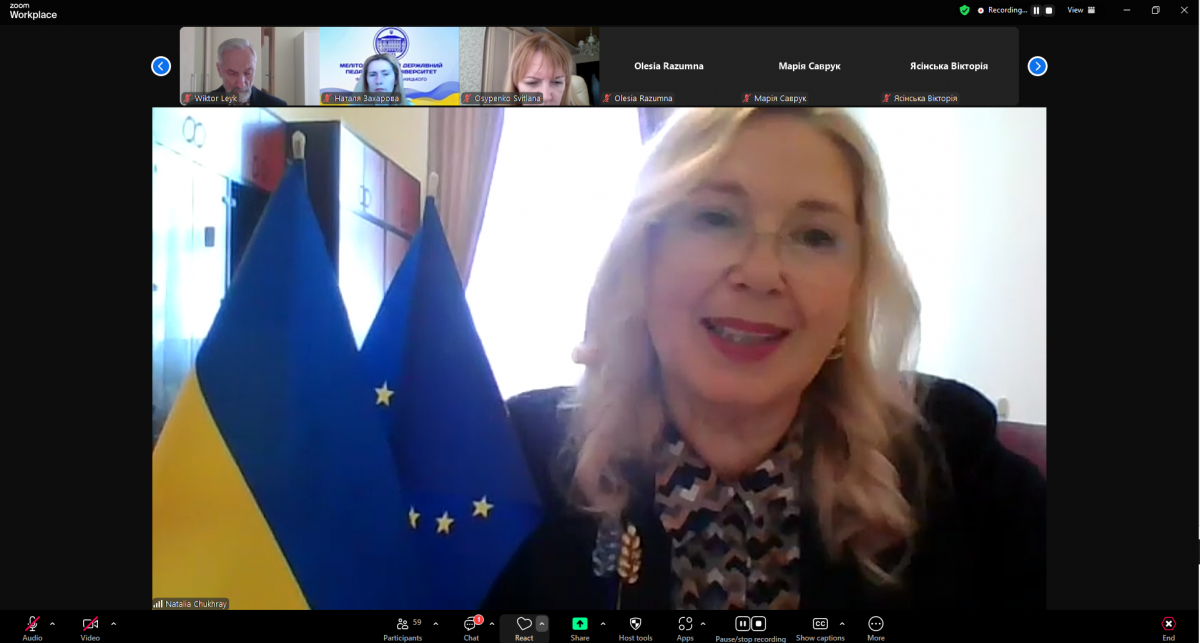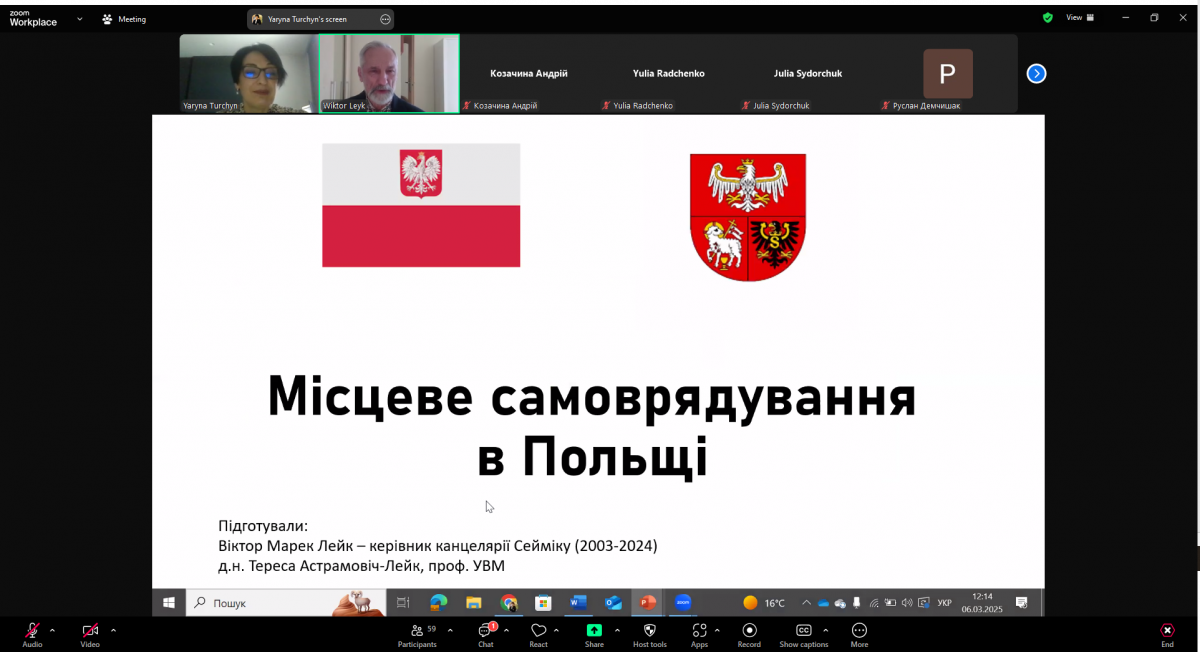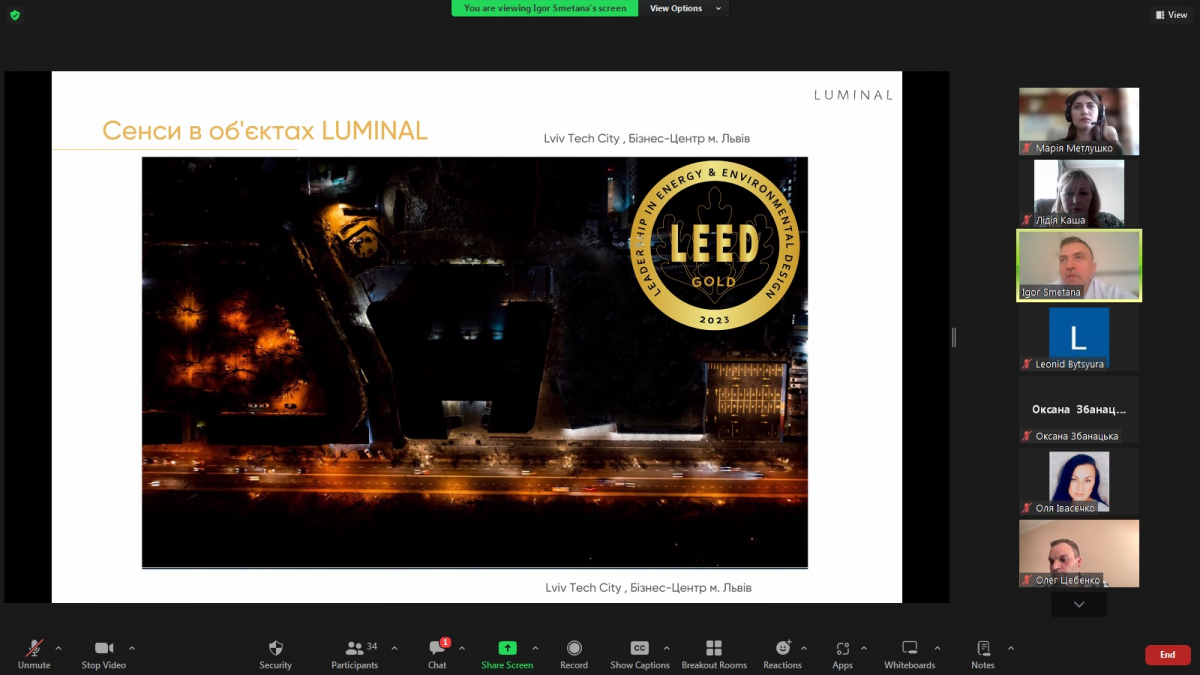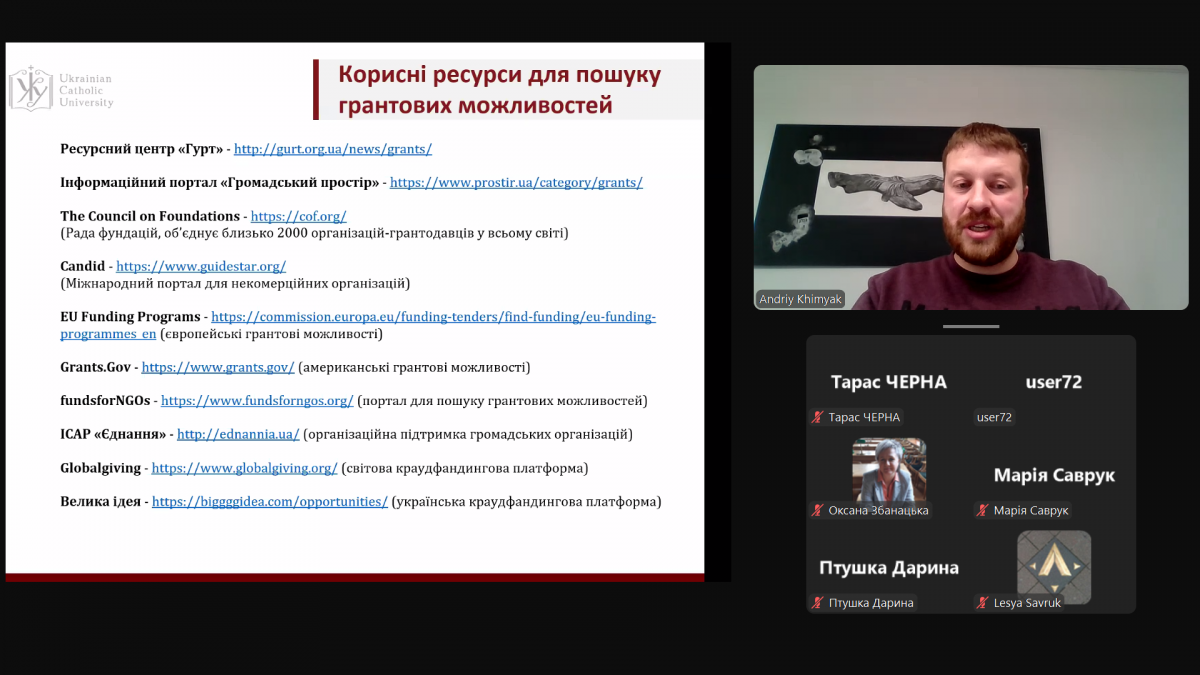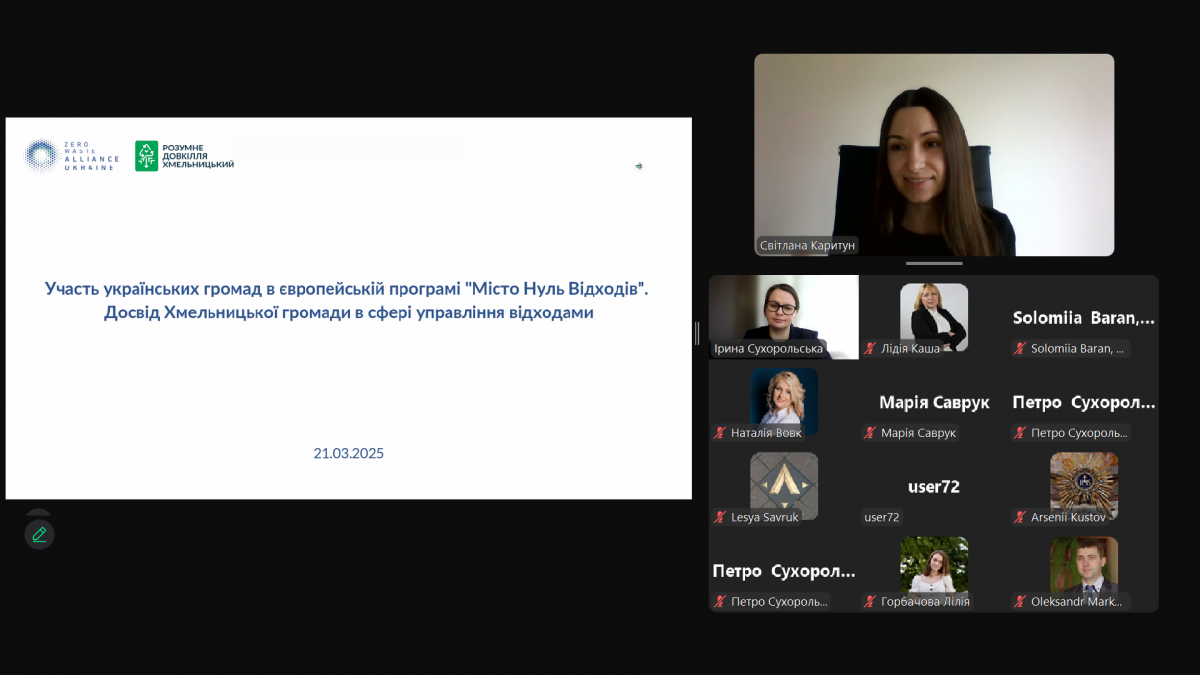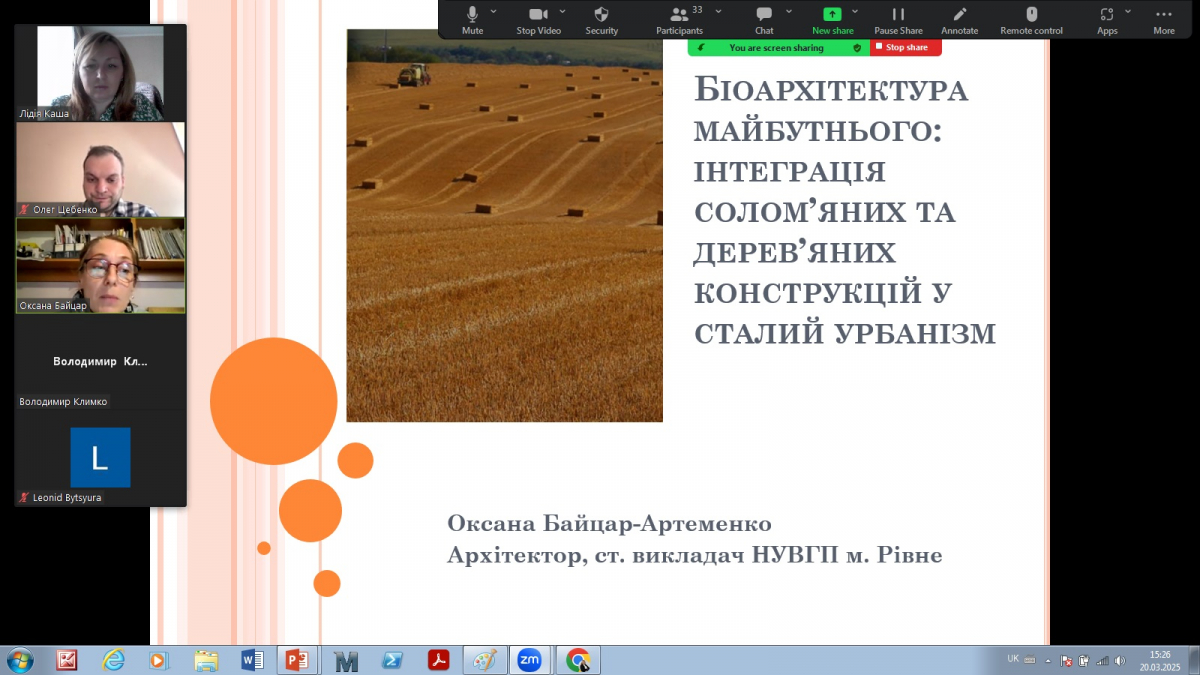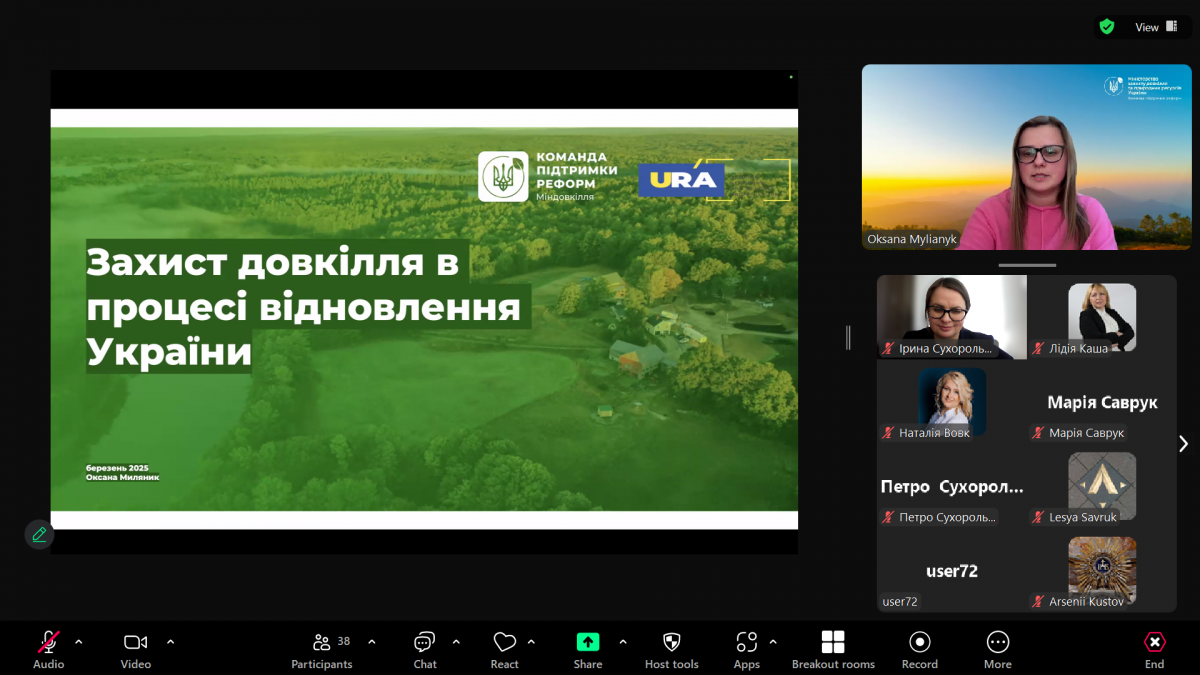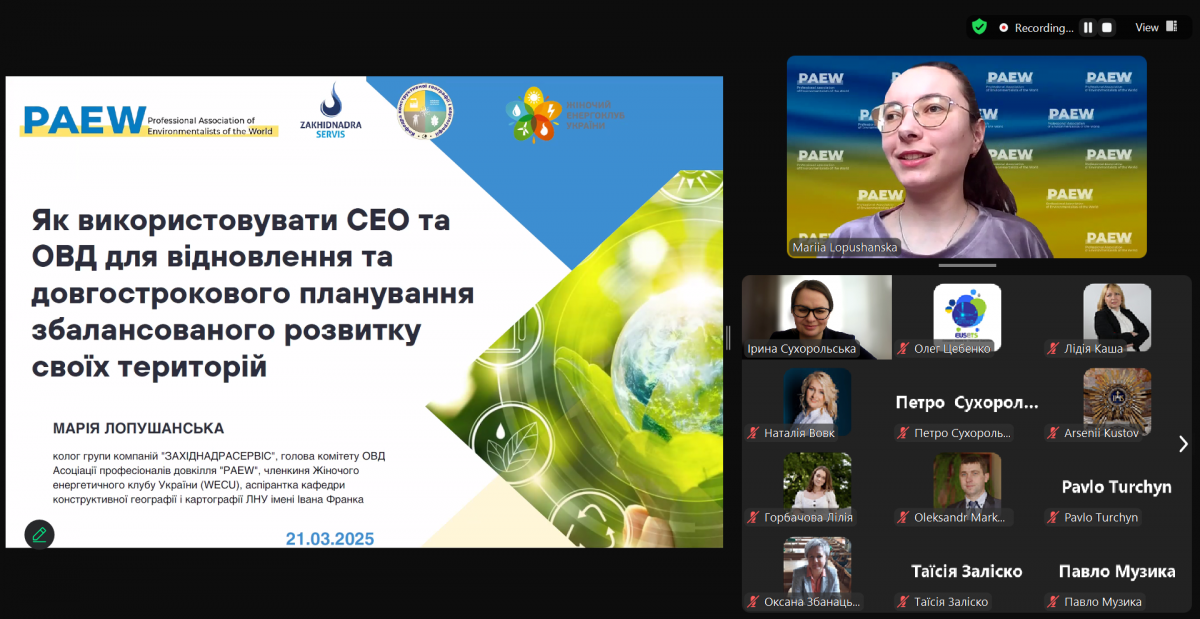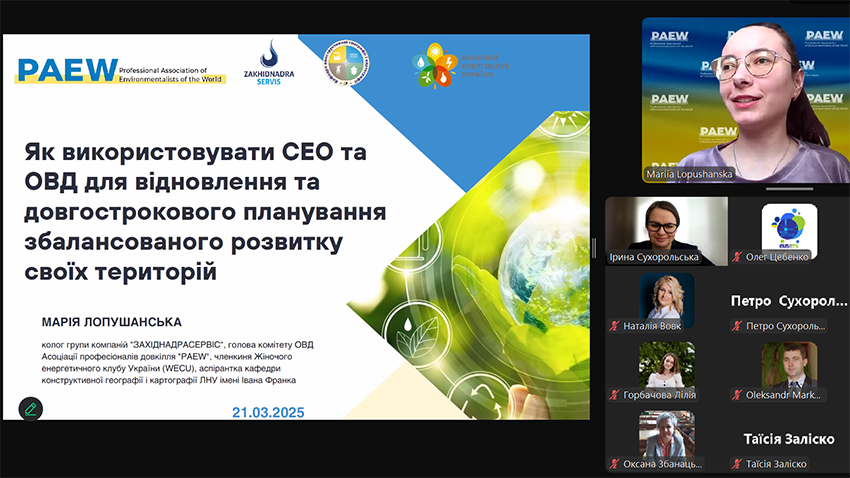To promote knowledge about the European Union and opportunities for community development in Ukraine, the team of the project “European Studies for Technical Specialties at Lviv Polytechnic National University” (EUSTS), supported by the EU Erasmus+ Programme under the Jean Monnet action, held the Third European Studies Academy in March 2024. The event was titled: “Decentralization and Community Development: EU Programs for Ukraine”.
The Academy program consisted of eight six-hour modules:
- Module 1: Decentralization and Community Development: From Challenges to Opportunities (Key speaker – Yaryna Turchyn, Professor, Department of Political Science and International Relations)
- Module 2: European and National Programs to Support the Resource Potential of Territorial Communities in Ukraine (Key speaker – Olha Ivasechko, Associate Professor, Department of Political Science and International Relations)
- Module 3: GR and Lobbying “through the EU”: Engaging European Politicians and Businesses to Address Challenges in Ukraine (Key speaker – Olena Lukachuk, Associate Professor, Department of Political Science and International Relations)
- Module 4: Community Resilience: Cooperation for Recovery and Development (Key speaker – Oleksandr Tsebenko, Deputy Director of the Institute of the Humanities and Social Sciences)
- Module 5: Sustainable Development and Eco-Cities: From Concept to Implementation (Key speaker – Dr. Liliya Kasha, Associate Director of the Institute of Power Engineering and Control Systems)
- Module 6: Green Post-War Recovery: National, Regional, and Local Dimensions (Key speaker – Iryna Sukhorolska, Associate Professor, Department of Political Science and International Relations)
- Module 7: Cultural Resilience: The Role of Communities in Heritage Preservation (Key speaker – Nataliia Vovk, Associate Professor, Department of Social Communications and Information Activities)
- Module 8: Use of Information Technology for Community Communication under Decentralization: EU Experience and Ukrainian Realities (Key speaker – Oleh Markovets, Head of the Department of Social Communications and Information Activities).
The modules focused on effective community governance, integrating EU experience into Ukraine’s decentralization process, and exploring innovative approaches to sustainable local development.
Participants—including local government officials, academics, students, postgraduate students, and civil society activists—gained both theoretical and practical knowledge by analyzing real case studies on community development in the current context.
Special attention was devoted to external funding mechanisms provided by European institutions and programs. Emphasis was placed on the importance of building local capacity through strategic development planning that incorporates climate change, social challenges, and post-war infrastructure reconstruction.
Modules also addressed the role of GR strategies and the establishment of relationships with European political elites to address local issues. Equally important was the discussion of environmental modernization in communities during the post-war period. Participants explored the concept of "green recovery" and the application of circular economy principles, eco-oriented governance, energy efficiency, and smart city infrastructure development.
The cultural resilience module highlighted the importance of preserving national identity, historical memory, and supporting local cultural initiatives as tools to strengthen communities’ social capital.
A separate module focused on modern information technologies. Participants were introduced to successful examples of e-governance, digital platforms for citizen–government communication, public service digitalization, and the challenges Ukrainian communities face on this path.
The Academy served not only as an educational platform for sharing knowledge, but also as a space for fostering new interdisciplinary and cross-sectoral connections that could lead to future partnership projects.
The Academy featured prominent Ukrainian and international experts, scholars, members of parliament, and representatives of local authorities, including:
- Teresa Astramovich-Lejk, Professor at the University of Warmia and Mazury, Chair of the International Cooperation Commission of the Warmian-Masurian Regional Assembly (Poland);
- Oksana Yurynets, Member of the Verkhovna Rada (8th convocation), Doctor of Economics, Professor at Lviv Polytechnic, Head of the NGO “Agency for European Cooperation”;
- Sofiia Kozak, International Cooperation Expert at Cities4Cities United for Ukraine;
- Anna Osmolovska, PhD in Political Science, Deputy Head of UAdvise Educational Academy, Head of the NGO “Educational Space of Opportunities”;
- Andriy Dyachenko, Head of Sheptytskyi District State Administration, Laureate of the State Prize of Ukraine in Science and Technology;
- Halyna Shyrochuk, Acting Director of the Department of Economic Policy, Lviv Regional Administration;
- Iryna Suprun, Member of the Lviv Regional Council, Lawyer, Head of the NGO “Science, Exploration, Extraction”;
- Ihor Smetana, Expert in Human-Centric Lighting, Founder and Director of LUMINAL;
- Andriy Kovalchuk, Founder and Director of Leoenerg;
- Nataliia Andrushevych, Chair of the Board at the “Society and Environment” Resource and Analysis Center;
- Svitlana Karytun, Program Manager for “Zero Waste City” at the Ukrainian Zero Waste Alliance;
- Olena Vasylyko, Chief Architect of Lviv Region and Director of the Department of Architecture and Urban Planning;
- Yuliia Starodub, Acting Director of the Belz City Cultural and Leisure Center;
- Mariia Kurylo, Deputy Head of the Information Policy Department, Head of the Press Service of the Lviv Regional Military Administration;
- Nataliia Matviichuk, Head of the Administrative Services Center of Rava-Ruska City Council;
- Przemysław Kuczkowski, Secretary of Toruń, Assistant of the Faculty of Law and Economics at Casimir the Great University in Bydgoszcz;
- Yulia Malich, Head of Public Policy at the Foundation for Development of Ukraine, Itera and Bolt in Ukraine and Slovakia;
- Mariana Lutsyshyn, Head of the EBA Lviv Office
and others.
The Academy was a significant step toward forming a modern vision for community development in Ukraine based on European values, partnership, and innovation.
Based on final test results, 84 certificates were awarded to participants, including students and professors from leading Ukrainian higher education institutions (e.g., National Academy of Internal Affairs, Taras Shevchenko National University of Kyiv, National Academy of Culture and Arts Management, Lviv National University of Veterinary Medicine and Biotechnologies, State Biotechnological University, Melitopol State Pedagogical University, Institute of Animal Science of the National Academy of Agrarian Sciences); representatives of local authorities and territorial communities (e.g., Lviv Regional State Administration, Rava-Ruska City Council, Lviv City Council, Burshtyn City Council, Kremenchuk City Council); NGOs and other organizations (e.g., Community Research Support Network “Dovkola,” Lviv Bureau of European Integration)..
Participants shared their positive feedback, such as:
- “Participating in the Academy was a valuable experience that deepened my understanding of the importance of European integration for community development in Ukraine. Especially useful were sessions on EU programs like Ukraine Facility and environmental legislation reforms in the context of EU accession.”
- “Thanks for the opportunity to join the Academy. I gained a clear understanding of the principles of decentralization in the EU and their relevance to Ukrainian community development.”
- “The Academy offered practical guidance on implementing European standards at the local level. A very useful and enriching experience.”
- “The program allowed me to expand my knowledge and build a network with participants from various regions. It also offered insights into how to integrate local Ukrainian initiatives into the broader European context.”
- “The content was highly informative, covering a wide range of areas from policy to culture. It was a great opportunity to learn and exchange ideas with like-minded individuals.”
- “This Academy offered more than just learning—it became a space for inspiration, collaboration, and professional growth. I gained knowledge I will use in teaching courses such as ‘Local Finance,’ ‘Finance of Territorial Communities,’ and ‘Finance, Money, and Credit.’”.
The project team sincerely thanks all participants for their engagement and expresses special appreciation to the speakers for their meaningful contributions!
More information about the EUSTS project can be found on the official website of Lviv Polytechnic.
